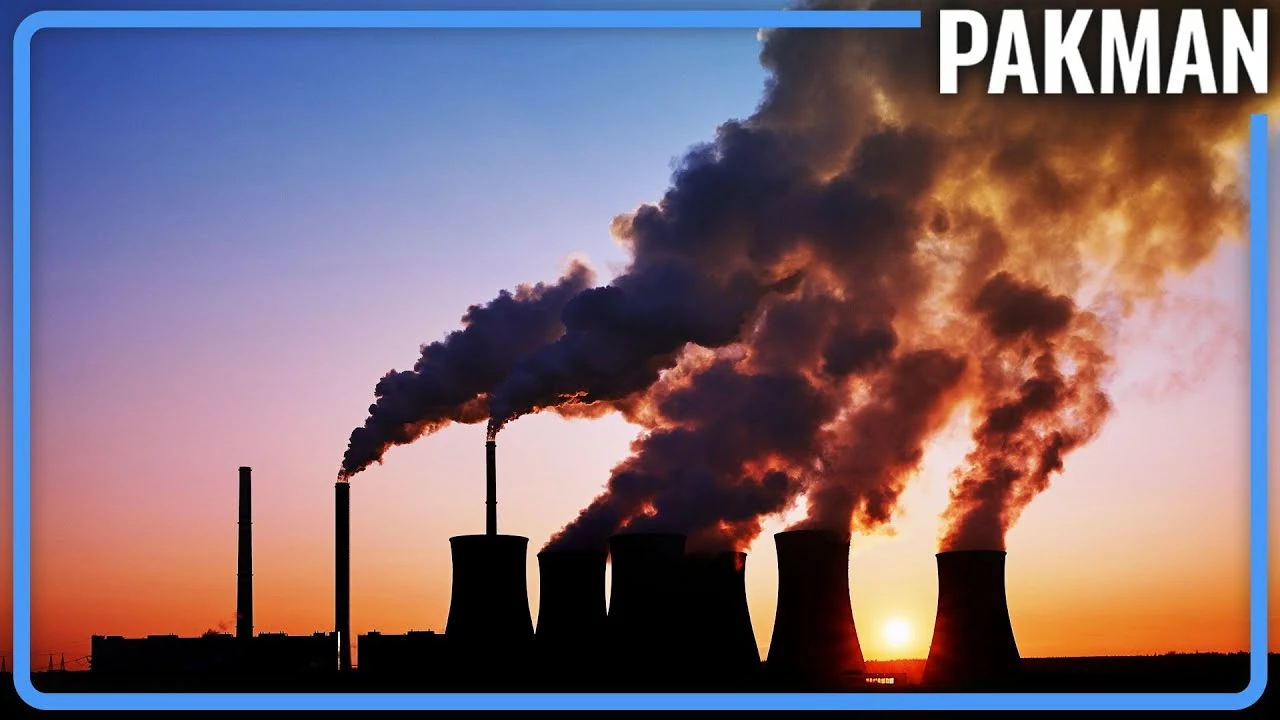Why is the burning of fossil fuels bad?

The Deep Dive into Fossil Fuels
The other day, while sipping my morning cup of Joe, an odd question crossed my mind. 'Why is the burning of fossil fuels bad?' Quite intuitive for the early hours of the day, isn't it? Being a nature enthusiast, I have always been concerned about it. Eloise, my curious one, has been pushing me around with her questions about environmental conservation, and it was time I answered her and you. So, here I am, diving deep into the fossil fuels conundrum, and taking you along.
Fossil fuels, as per their dictionary definition, are natural fuels such as coal or gas, formed over many centuries from the remains of dead plants and animals. Sounds like a simple thing keeping our lights on, doesn't it? The reality isn't that crystal clear though. These fossil fuels when subjected to high pressure and temperature transform into a dense, carbon-rich thing of beauty; that is, if you're looking from an industrial point of view. The consequences of using these for energy though, are as far from beautiful as my attempts at baking.
The Elements at Play
Let's understand this with an analogy, bear with me if it's too simplistic, I am just a humble blogger, not the 'Science Guy'. Imagine you, as a kid, got a bucket full of candies. Your Mom tells you not to eat them all at once, but c'mon, who listens? You gobble up the whole bucket and then suffer the mother of all tummy aches. Well, fossil fuels are our candy. A resource that was supposed to last us the stretches of time, but we gobbled them up without thinking of the consequences.
Burning these fossil fuels releases not only the energy we crave but also some unsolicited guests in the form of carbon dioxide, sulfur dioxide, and nitrous oxides. These would have been harmless, if not for their ability to trap heat. This results in a phenomenon we have christened as the 'Greenhouse Effect'. It's like inviting a vampire into your house; they make everything warmer and not in a cozy nighttime story way.
Carbon Dioxide, the most emitted gas from burning fossil fuels, is like Murray, my younger one, soft-spoken but a real menace (kidding, love you, Murr!). This seemingly innocent gas traps heat like Murray hoards his Lego pieces. The more we burn, the more CO2 we thrust into the atmosphere, leading to higher average temperatures around the world. Rising temperatures disrupt the world's climatic balance, leading to swiftly changing weather patterns, causing floods and droughts. It's like Nature's hit back for our greed.
The Invisible Killers
Not everything harmful is visible, like the mischief glint in Eloise's eyes (yes, my little troublemaker). Unfortunately, the things released from fossil fuel burning are a lot more dangerous. Enter Air pollutants - tiny little invisible things with a knack for causing serious harm. They not only impact the environment but also pose a considerable risk to our health. Imagine aspiring to breathe fresh air and ending up inhaling a cocktail of harmful chemicals. Doesn't sound too pleasant, does it?
From causing respiratory issues to neurological problems, these particles can cause a list of health issues longer than a grocery list before a barbecue party. Long-term exposure can even lead to serious life-threatening diseases like cancer. And trust me, no one wants that on their plate. Now, I know that a pot of pasta can turn from blog worthy to soggy disaster in seconds, but the world turning into a dangerous sphere of diseases over the decades is a bit of an overkill!
Cost to Those in Scales and Feathers
If poking fun at children has not captivated your attention yet, perhaps a conversation on our feathery, scaly, and furry friends will do the trick. The damage we deal to Mother Earth through fossil fuels also directly impacts wildlife. Ocean acidification, a direct result of higher CO2 levels in the atmosphere, is so harmful it could be the plot for a horror show for sea creatures. And I am not talking about the cute little scared shrimps; this includes the big guys too, like whales and dolphins.
The acidity eats away the shells of shellfish and damages coral reefs, which are equivalent to a metropolis for marine life. On land, fluctuating climate changes can disrupt the nesting patterns and migration routes of many birds and animals. Extreme weather conditions like floods and droughts can wipe out entire habitats. Remember that one time when my basement got flooded, and we lost a bunch of old family photos and some of my precious records? That’s how animals feel when these things happen, but on a titanic scale.
Well, that was a deep dive, wasn't it? Getting to the bottom of why burning fossil fuels is bad is like unearthing an ancient secret that has a direct impact on the future of humanity and the world. We can change this narrative, innovate ways to switch over to cleaner energy sources, and cut back on our fangs-in-a-candy-bucket approach. It's high time that we not only turn a leaf but plant some too! Here's to a cleaner and healthier future, one where Eloise and Murray can still see polar bears in natural habitats, not just in old photographs. So, the next time you switch on the light or rev up your gas-guzzler, think twice. We hold the power to change. Cheers to that!

Post-Comment